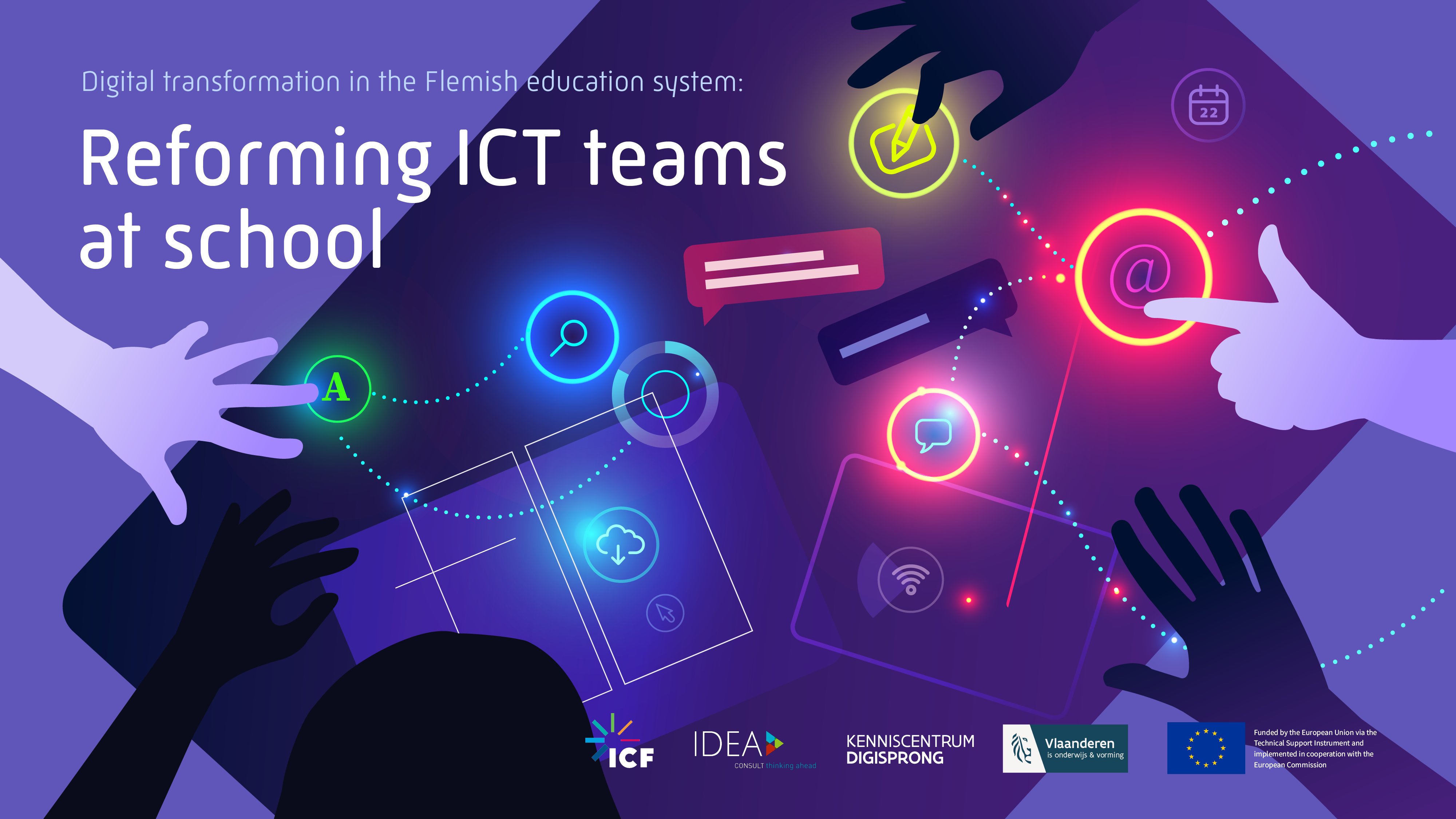
The objective of the project was to support the Flemish Government in the implementation of the priority ‘a strongly supportive and effective ICT school policy’ of Digisprong (‘Digital Leap’) an initiative supported through the EU’s Recovery and Resilience Fund. More specifically, the project helped the authorities develop a strategy and guidelines to support primary, secondary, and adult education schools in the transition to the effective use of ICT for learning and teaching.
The goal of the project was to help embed the task of the ICT coordinator more broadly in team-oriented ICT operations in the schools. At present, many ICT coordinators indicate that they are solely responsible for ICT tasks in their school. Other schools have already switched to a more valuable model of ICT teams in which, besides the ICT coordinator, other colleagues also take on tasks, such as learning environment management, social media coordination, media coaching, etc., and technical, pedagogical, and administrative ICT tasks are more evenly distributed. This allows the workload of the ICT coordinator to be spread out more effectively and to attract different profiles. Such a model is also in keeping with modern forms of school leadership, in which leadership is more a team responsibility.
The European Commission engaged the services of an international consulting agency to implement the project in close co-operation with the Flemish authorities, more specifically the Knowledge Centre for the Digisprong initiative, which is part of the Flemish Department for Education and Training. The project team consisted of both international and Belgian experts thus combining European expertise with thorough knowledge of the Flemish education system. It also included opportunities for peer exchanges with governments from other EU Member States (Spain, Portugal, Estonia, Netherlands).
The project was fully financed through the Technical Support Instrument and implemented in co-operation with the European Commission.
Results the project achieved:
- A task overview for ICT coordinators that clearly defines what ICT coordination entails, that can contribute to strengthening the position of ICT coordinators and that can support the evolution towards team-based ICT functioning.
- A study of the characteristics of strong ICT teams with the aim of proposing a new model of team-based ICT coordination.
- A set of guidelines for more team-oriented ICT coordination at school.
- Policy recommendations on the implementation of the new tools.
Want to see it in images? Watch the video of the project:
- Project locations
- Belgium
